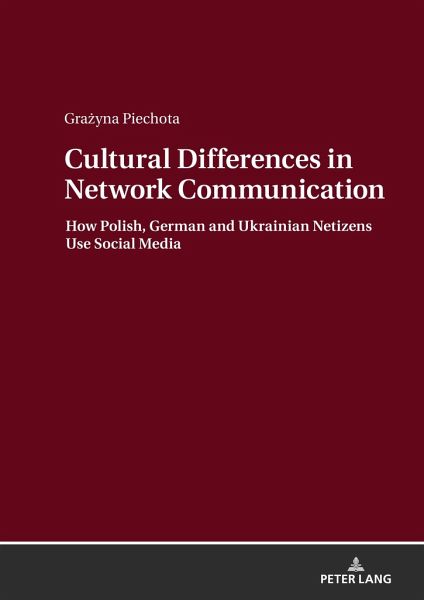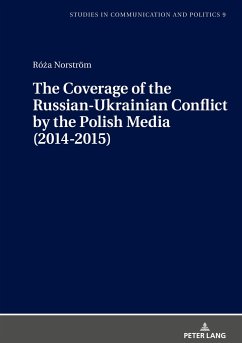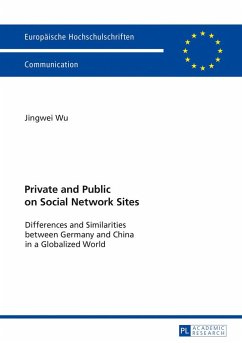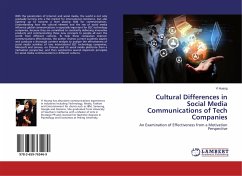
Cultural Differences in Network Communication
How Polish, German and Ukrainian Netizens Use Social Media
Versandkostenfrei!
Versandfertig in 6-10 Tagen
50,85 €
inkl. MwSt.

PAYBACK Punkte
0 °P sammeln!
This book tries to answer the question how the identity and cultural values of individuals are being modified by the Internet and its global culture. It is based on unique research projects focusing on foreign students and their way of communicating in the new media. The aim is to explore the relationship between the cultural affiliation of young Internet users from Poland, Germany and Ukraine and their attitudes as well as communication behaviour in Internet interactions.The author presents an in-depth analysis of network communication and its influence on possible changes of cultural identit...
This book tries to answer the question how the identity and cultural values of individuals are being modified by the Internet and its global culture. It is based on unique research projects focusing on foreign students and their way of communicating in the new media. The aim is to explore the relationship between the cultural affiliation of young Internet users from Poland, Germany and Ukraine and their attitudes as well as communication behaviour in Internet interactions.
The author presents an in-depth analysis of network communication and its influence on possible changes of cultural identity. Creating an alternative platform for discussions, network communication becomes a place for a new type of identification - a cosmopolitan one. It is also the frame in which self-reflection and modification of cultural identity take place. According to the author, the social media thus might also be perceived as a tool for building tolerance with respect to the cultural differentiation of the world.
The author presents an in-depth analysis of network communication and its influence on possible changes of cultural identity. Creating an alternative platform for discussions, network communication becomes a place for a new type of identification - a cosmopolitan one. It is also the frame in which self-reflection and modification of cultural identity take place. According to the author, the social media thus might also be perceived as a tool for building tolerance with respect to the cultural differentiation of the world.














